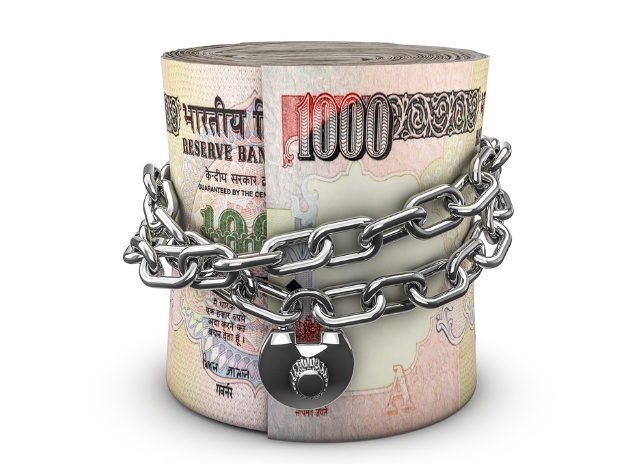
What is Demonetization?
Demonetization takes place whenever there is a change of national currency. It is the act of striping the currency unit of its status as legal tender. This move requires the old unit of the currency of a nation to be discharged and replaced with a new currency unit.
Why governments resolve to demonetize the currency?
There are multiple reasons why governments demonetize their local unit of currency. Major reasons include to combat inflation, combat corruption and to discourage the cash system.
How does it happen?
The demonetization process involves either introducing new currency notes or coins of the same currency or completely replacing the whole currency with new currency. The effect of demonetization will be massive in many markets where payment of cash is mandatory and major forms of profit is taking place in terms of money.
The expected benefits of demonetization in a democracy
- On long-term basis the government’s decision to control black money, may result in the reduction of corruption and bring transparency into the sector.
- The move will benefit the poor, the middle class and aspirational middle class and will upsurge the opportunity thereby, bringing in real estate and higher education within their reach.
- Investment in gold and jewels will increase as trust on currency will gradually go down.
- Funding for arms, smuggling and terrorism will take a setback.
- The lower and middle class will not find it tough to account for or exchange the currency.
- Direct and indirect tax can be expected to take a raise.
- More digital transaction will take place.
- Reduction in parallel economy will increase the size of formal economy.
Indian government’s move and announcement on 8th November 2016
On the 8th of November 2016, the Indian government decided to demonetize the 500 and 1000 rupee notes. These notes accounted upto 86% of the country’s cash supply. The government’s aim was to eradicate counterfeit currency, fight tax evasion, eliminate black money acquired from money laundering and terrorist financing activities and to promote a cashless economy.
By making the larger denomination notes worthless, the individuals and entities that own huge sum of black money that had been acquired from parallel cash systems were mandated to convert the money at a bank which is by law required to collect tax information from the entity. If the entity is lacking with proof regarding the tax payments made on the cash, a tax penalty of 200% was imposed. This move is expected to bring more transaction under the tax net.
What have been the fallouts?
The government’s move is bold in its intent and massive in its measure while the intent is clear the implementation and impact isn’t worth it. The fallouts of demonetization is as follows
- The move led to the slowdown of the Indian economy.
- With the emerging cashless transaction situation, the government and the businesses will have the necessity to guard against cyber-attacks.
- The demonetization effect had caused severe inconvenience to common people.
- This move deeply impacts the working sections dependent on monthly or bi-monthly cash payments.
- The small businesses will be affected at least in the shorter run.
- Black money in the form of foreign currency and gold would be eliminated from the move and stashed away in tax havens.
How does it impact on property and gold prices?
Land and property prices particularly those of luxury homes are likely to fall in the short and medium term. Unorganized builders and secondary property market would be adversely impacted. There may be a short-term impact on the gold prices. Initially the gold prices may fall but gradually it would get back to its normal market value.
Conclusion:
The ban on high denomination of currency has the potential to dramatically rise up the volumes of electronic transaction. To protect this, there is an instant need for the banks to be proactive on their information security and reinforce their IT infrastructure against the potential cyber-attacks. With more electronic transactions and monitored cash disburser, the government will have greater control on who has access to money.
The demonetization move will force the people to disclose their income and pay taxes. This will lead India to be a more tax-complaint society!!
Thanks for reading.